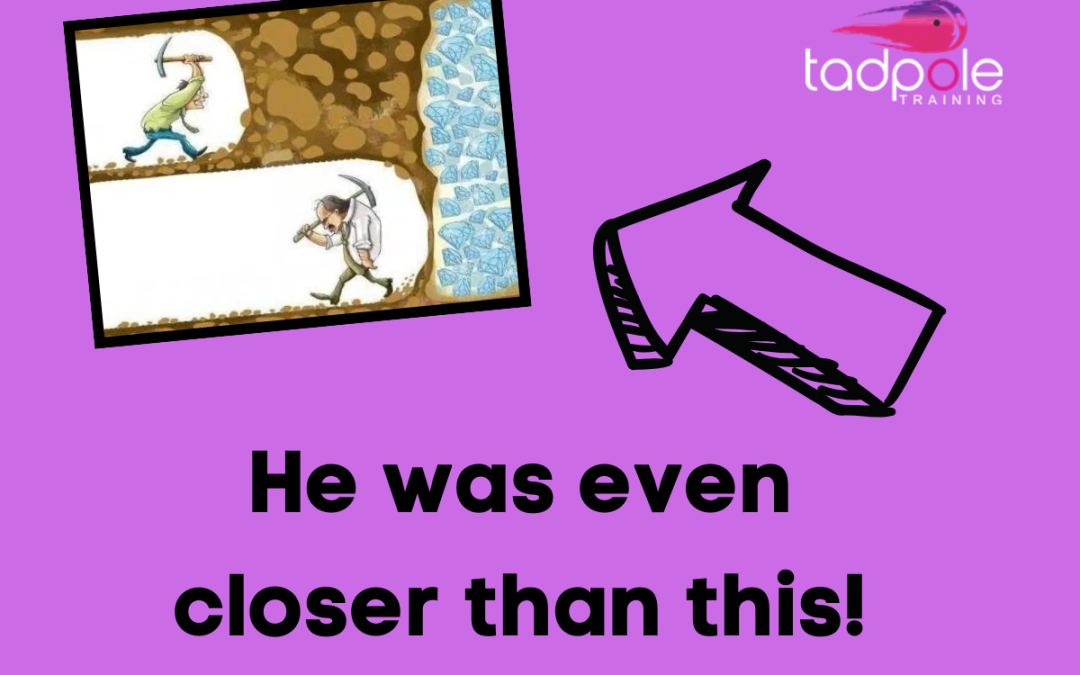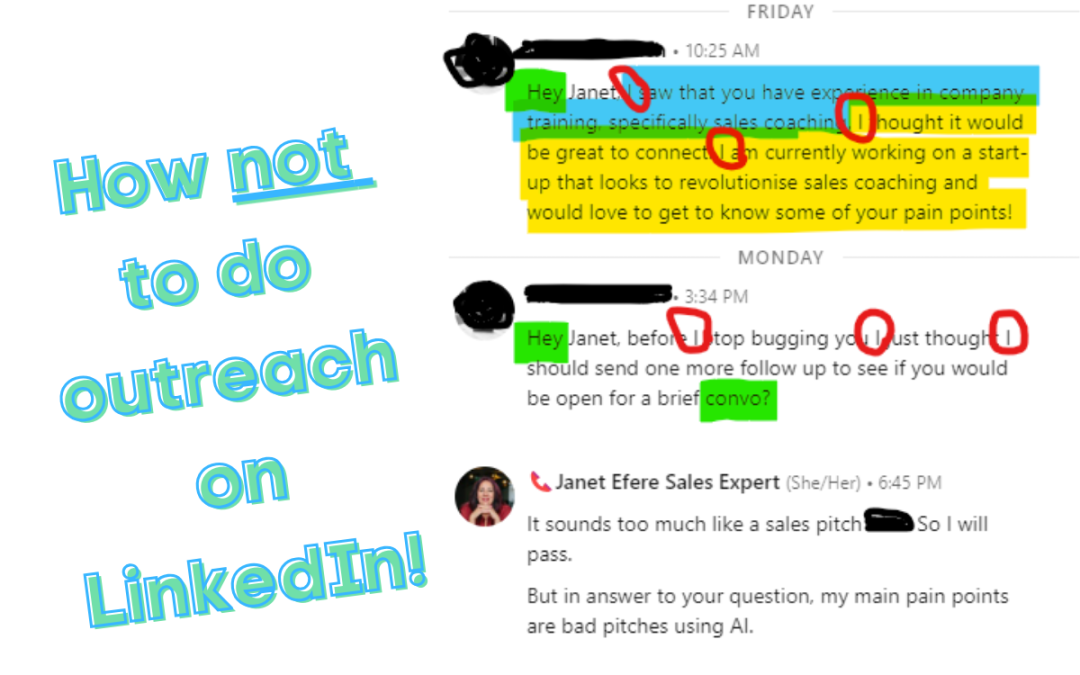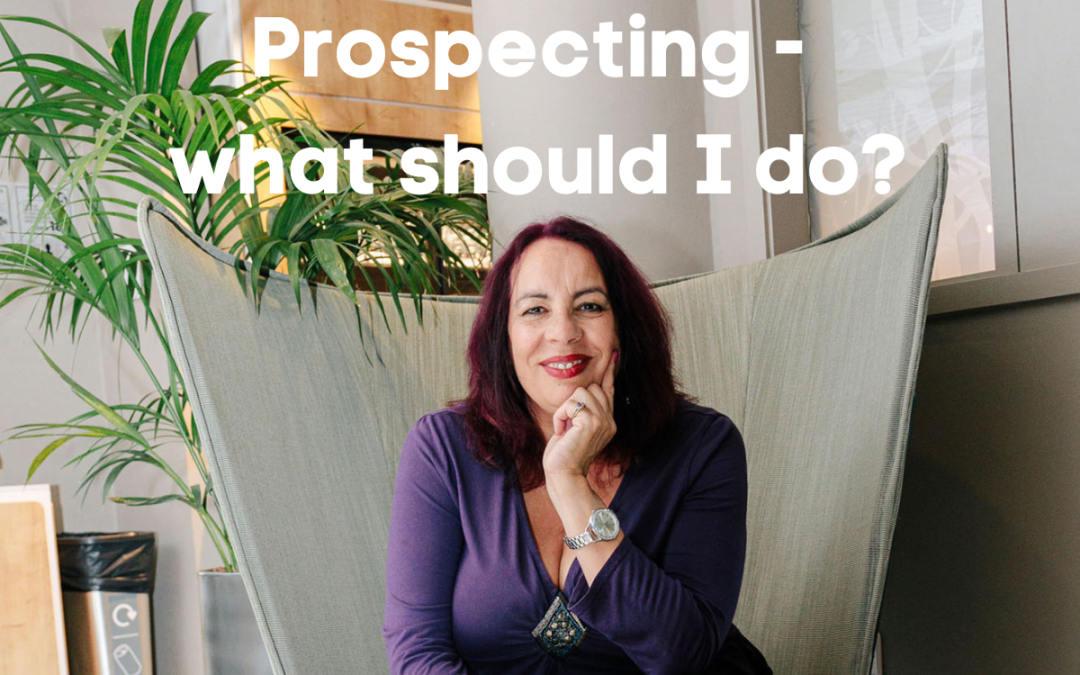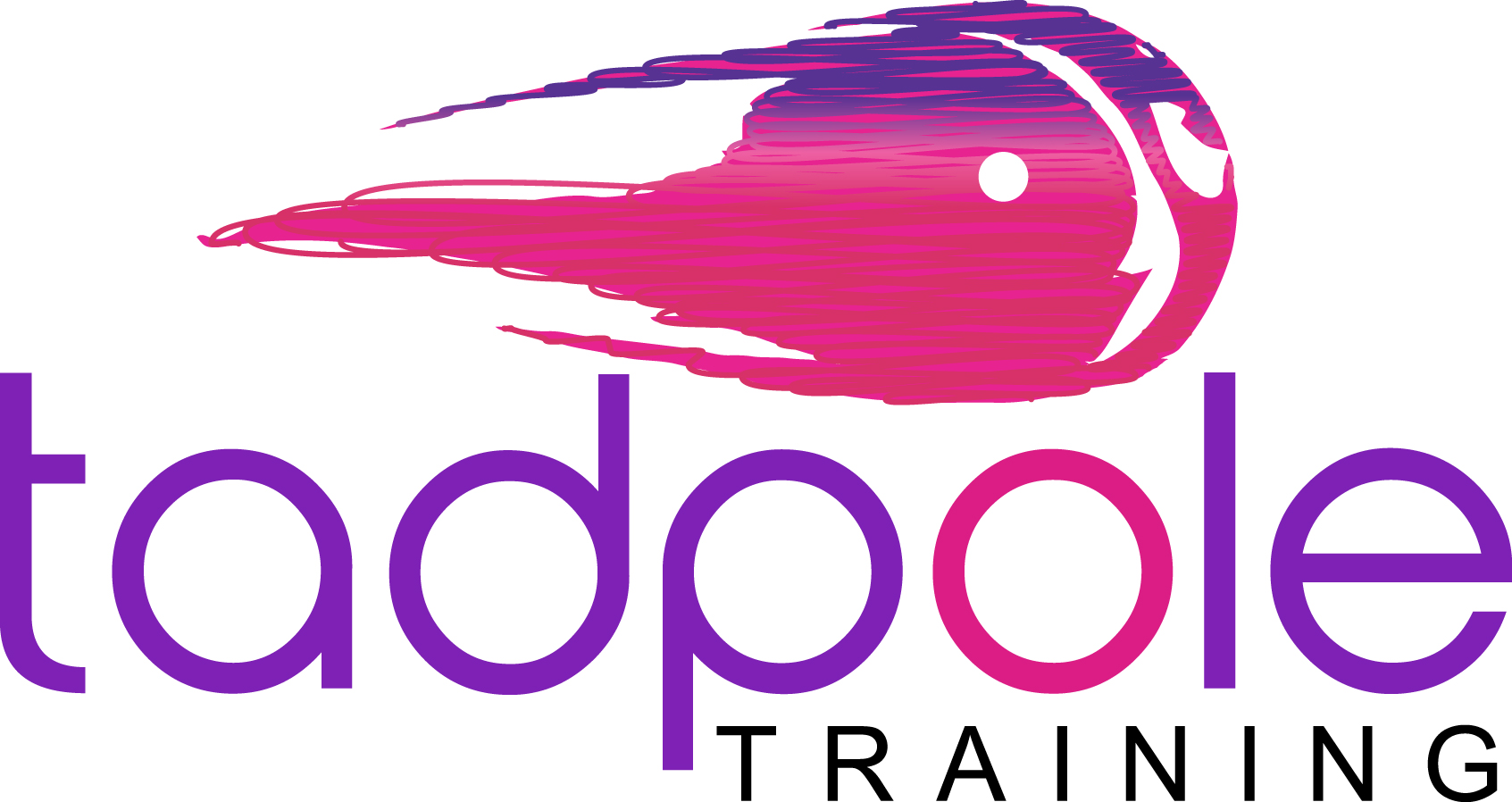
by Janet | Mar 15, 2024 | sales training
This is the story of how not to engage with your ideal client.(it’s real, so I have changed the names to protect the innocent)Tony had a very specific customer profile for his services. His ideal customer was high level, high profile and notoriously hard to gain...

by Janet | Mar 13, 2024 | sales training
Unfortunately bad outreach on platforms like LinkedIn is getting more common, so what can you do about it? Well one of the first things is to make sure your team aren’t doing it! It would be easy, to just criticise people who pitch slap you on LinkedIn, so in an...

by Janet | Mar 11, 2024 | sales training
Did you know that ghosting in sales is probably costing your sales people about a fifth of their time? Read on to discover how we know that and what you can do about it. So ghosting might be a thing now, but guess what? before the 2000s it wasn’t! Instead you...

by Janet | Feb 23, 2024 | sales training
I made a prospecting call. He picks up and actually answers with his own name (that’s already a win!) I tell him my name and remind him how we know each other, BUT it is tremendously noisy. It sounds like it is a heated meeting! I say ‘it is super noisy...

by Janet | Feb 11, 2024 | sales training
Well are you boring?And does it even matter?Well if you are prospecting it does!What’s in YOUR inbox? What about the message section on this platform?It’s likely to be thousands of generic messages because people have been taught a ‘magic’...






